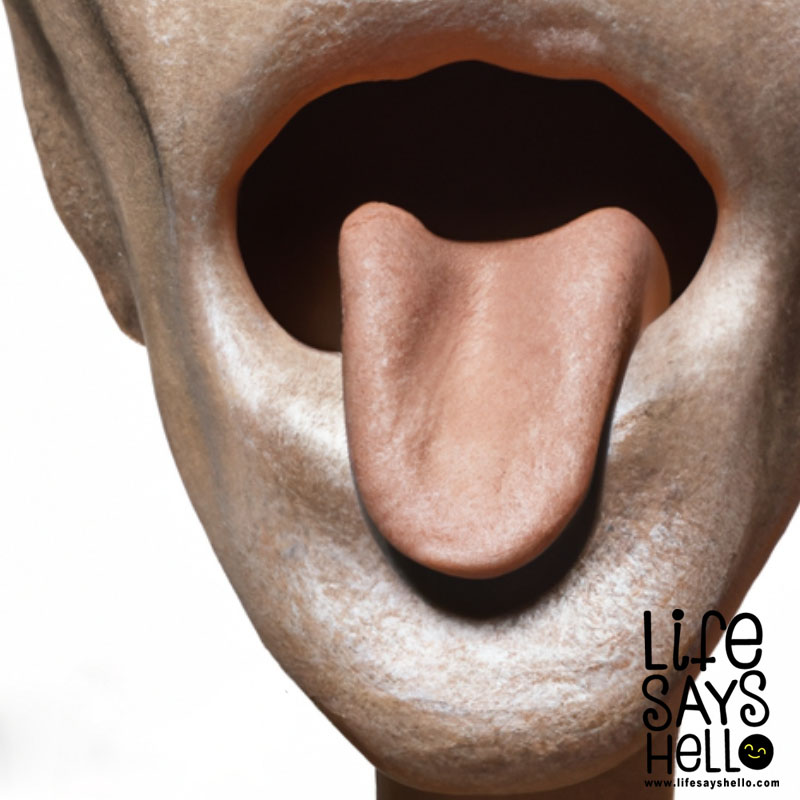Don't Ignore These 10 Common Symptoms of Vitamin D Deficiency

Feeling extremely tired lately for no reason? Having constant back pain that won’t go away? You may be experiencing some common symptoms of vitamin D deficiency.
Vitamin D is an essential nutrient that plays many important roles in the body like maintaining bone health and supporting immune function. Unfortunately, deficiency is quite common, affecting around 42% of Americans according to recent statistics.
The signs of vitamin D deficiency can often be vague and non-specific, so it frequently goes undiagnosed. But ignoring symptoms and not getting your levels checked can lead to serious long-term health issues.
Here are 10 common clues your body is lacking crucial vitamin D.
1. Persistent Fatigue and Weakness
One of the most frequent symptoms of a vitamin D shortfall is constant tiredness and low energy levels. Some studies have shown nearly half of people complaining of fatigue turn out to be deficient in vitamin D.
This vital nutrient plays a role in muscle function and nerve signaling, which is why a lack of it can leave you feeling weak with heavy limbs. Fatigue caused by vitamin D deficiency often gets worse in winter months when sunlight exposure is lower.
2. Bone and Back Pain
Without adequate vitamin D levels, you aren’t able to properly absorb calcium which is essential for strong bones. Over time, low vitamin D can cause a softening of the bones called osteomalacia in adults and rickets in children.
A deficiency results in bone pain, tenderness and aches, particularly in the lower back, pelvis, legs and ribs which bear more body weight. Some studies have linked chronic lower back pain to vitamin D deficiency.
3. Depression
Research reveals vitamin D also plays a role in regulating mood and warding off depression. The underlying reasons are still being studied, but likely have to do with its effects on brain chemicals like serotonin.
People deficient in vitamin D are at higher risk of depression. Correcting a deficiency may help improve depressive symptoms, especially when combined with other treatments.
4. Impaired Wound Healing
Slow and poor healing of wounds is another sign you may not be getting enough vitamin D. Studies demonstrate vitamin D stimulates production of compounds that form the foundation for new skin. It also controls inflammation levels that can interfere with healing.
5. Bone Loss and Fractures
Without vitamin D, you can’t absorb enough calcium for bone remodeling and maintenance. Over time, this causes osteopenia and osteoporosis resulting in soft, thin bones prone to fractures.
Elderly people with vitamin D deficiency suffer more hip fractures. Getting sufficient vitamin D, along with calcium, vitamin K and magnesium, is crucial for bone health as you age.
6. Hair Loss
Hair follicles are made up of tiny blood vessels that feed the root. Adequate vitamin D is needed for proper angiogenesis - the formation of new blood cells. Without enough vitamin D, hair may become dry and brittle.
Hair loss is a common symptom of vitamin D deficiency. Getting adequate vitamin D can help stimulate healthy hair growth.
7. Muscle Pain
Vitamin D deficiency commonly causes general muscle pain and tenderness stemming from its role in calcium absorption and promoting muscle function. Chronic deficiency can lead to overt myopathy which causes muscles to weaken and waste away over time.
Studies have connected insufficient vitamin D intakes to musculoskeletal pain in children and adults. Correcting a deficiency has been shown to reduce various chronic pain.
8. Frequent Infections
One of vitamin D’s major roles is regulating immune function. It stimulates production of natural antimicrobials that fight infections. Many studies confirm an association between low vitamin D levels and susceptibility to colds, flu and other respiratory infections.
Severe deficiency is linked to increased risk of serious infections like pneumonia that require hospitalization. Optimizing vitamin D offers immune-boosting benefits.
9. Headaches and Migraines
Research demonstrates an association between vitamin D deficiency and chronic migraines and tension headaches.
In one study of people with frequent migraines, nearly half were deficient in vitamin D. Further research found vitamin D supplementation reduced headache frequency, severity and pain by a significant amount in migraine sufferers.
10. Heart Disease Risk
Emerging research shows vitamin D deficiency raises risks of major cardiovascular diseases like heart attack and stroke. Vitamin D is involved in regulating blood pressure, cholesterol levels and inflammation - key risk factors for heart disease.
Studies demonstrate correcting vitamin D deficiency reduces cardiovascular disease risks, especially in people with pre-existing conditions like hypertension or diabetes. Make sure you aren’t deficient.
What To Do If You Have Symptoms
If you are experiencing any signs of vitamin D deficiency, schedule an appointment with your healthcare provider. They can order a simple blood test to check your vitamin D levels.
Ask for your “serum 25-hydroxyvitamin D” level. This is the best way to determine your status. Optimal values are between 30-80 ng/ml, while under 20 ng/ml is considered deficient.
Correcting a deficiency typically involves supplementing with vitamin D. Your doctor can suggest the appropriate supplemental dose based on your individual levels and needs. Most adults require at least 1000-4000 IU daily to maintain adequate blood levels.
Increasing vitamin D from sun exposure and food sources is also important. Aim for around 10-30 minutes per day of midday sun exposure without sunscreen. Eat more fatty fish, fish liver oil, eggs and vitamin D-fortified foods.
If you are overweight, losing excess body fat can help improve vitamin D levels since fat cells trap and hold onto vitamin D.
Finally, have any underlying medical conditions checked out. Certain gastrointestinal issues, kidney and liver disease can affect absorption and metabolism of vitamin D and contribute to deficiency.
Don’t ignore the warning signs of vitamin D deficiency. With simple testing and proper supplementation, you can correct it and start feeling healthier right away.
Don’t Dismiss These 10 Subtle Symptoms of Vitamin D Deficiency
Feeling a bit “off” lately but can’t pinpoint why? Before you brush it off as nothing, consider whether you may be experiencing some sneaky symptoms of a vitamin D deficiency.
Vitamin D is essential for bone health, immune function, muscle performance and much more. But despite its importance, deficiency is quite widespread, affecting around 40% of people in the US.
The early signs of insufficient vitamin D are often vague and can go unnoticed. But ignoring subtle symptoms can allow deficiency to progress and cause serious long-term health consequences.
Here are 10 subtle clues you may not be getting enough of this crucial vitamin:
1. Exhaustion and Burnout
Burned out, chronically exhausted but not sure why? One of the most common subtle signs of vitamin D deficiency is fatigue. Without adequate levels, you can feel persistently worn out and low on energy.
Vitamin D helps regulate energy metabolism and production. Deficiency can drain you while correcting it provides a boost. If ordinary tasks feel extra tiring, a lack of vitamin D could be to blame.
2. Achy Muscles and Bones
Do your muscles feel sore and achy on a regular basis? Are your bones throbbing and tender? Vitamin D plays a key role in calcium absorption and bone health.
Insufficient levels can lead to weak bones prone to discomfort and pain. Don’t ignore constant stiff, tender muscles and joints as they can indicate deficient D.
3. Low Mood and Irritability
Have you been feeling a little more down and irritable than usual lately? Vitamin D influences serotonin activity which affects mood and behavior.
Studies link vitamin D deficiency to increased risk of depression and mood disorders. Ensuring adequate levels can enhance overall mental health and outlook.
4. Slow to Heal
Do your cuts and scrapes seem slow to heal and take forever form proper scabs? Vitamin D ramps up production of antimicrobial proteins that form the foundation for new skin.
Poor wound healing can result from low levels. Make sure you’re getting enough to help accelerate skin repair and regeneration.
5. Hair Loss
Notice more hairs than usual on your brush and in the shower drain? Vitamin D promotes healthy hair follicles which require plentiful blood flow.
Deficiency can contribute to hair thinning and loss. Getting sufficient levels can nurture follicles for lusher, thicker hair growth.
6. Dull Skin, Eyes and Teeth
Lacking your normal glow lately? Vitamin D is crucial for smooth, supple skin. It’s needed to form collagen which maintains structural integrity. Deficiency can leave skin appearing dull and prematurely wrinkled.
Your eyes and teeth can also appear lackluster with insufficient vitamin D. Overall radiance inside and out depends on getting enough of this key nutrient.
7. Frequent Colds and Flu
Do colds and flu seem to linger longer than they should? Vitamin D is vital for immune regulation and fighting infection. Deficiency can leave you frequently under the weather.
Ensuring adequate levels can help give your immune system the D it needs to function properly and fend off illnesses.
8. Sweaty Head
Excessive sweating around your forehead, scalp and neck can be an obscure sign of vitamin D deficiency.
Without enough, calcium levels can drop resulting in overactivation of sweat glands. Damp hair and skin could mean you need more D.
9. Headaches
Have you noticed an uptick in headaches lately? Several studies link vitamin D deficiency to increased risk for chronic migraines and tension headaches.
This vital nutrient is involved in regulating inflammation which can spark head pain when excessive. Ensuring sufficient vitamin D levels can help ease a pounding head.
10. High Blood Pressure
Hypertension can also be a subtle symptom of insufficient vitamin D. Research shows it helps regulate blood pressure through various mechanisms.
Low levels are associated with increased risk of high BP. Checking your D levels may be wise if your readings are consistently elevated.
Don’t Delay If You Suspect Deficiency
If you are experiencing any potential symptoms of vitamin D deficiency, get your levels tested right away. A blood test measuring your 25-hydroxyvitamin D is ideal. Between 30-80 ng/mL is considered optimal.
Correcting a deficiency requires adequately supplementing based on your individual needs. Your doctor can help determine the proper therapeutic dose which often ranges from 1000-4000 IU daily.
Raising low vitamin D levels through sun exposure, food sources and maintaining healthy body weight is also beneficial. Address any underlying gastrointestinal issues or other conditions that can hinder absorption.
Ignoring subtle signs of vitamin D deficiency allows it to worsen over time. Don’t delay getting tested and treated if your body is giving you clues that you may be lacking this critical nutrient.




Comments